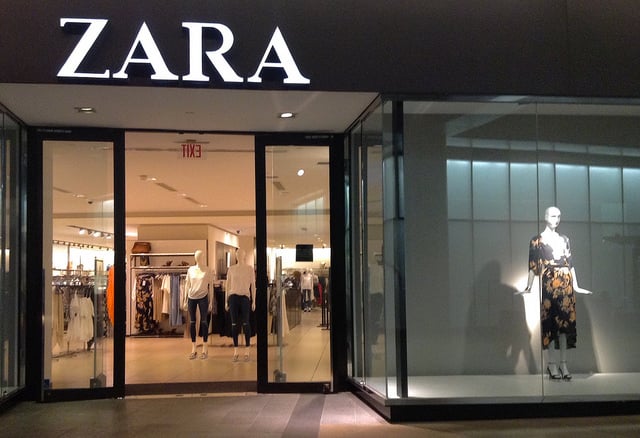Are the clothes on your back made by breaking the backs of others? This is something we all need to think about in light of a story coming out of Istanbul, Turkey, where unpaid garment workers are fighting back against a major fashion chain.
Zara is a Spanish clothing and accessories retailer with stores all over the world. It’s a member of the Inditex Group, which is the world’s largest apparel retailer. You’d think that, being a part of the largest apparel retailer in the world means that you’ve got some money to play with, so you can afford to pay people what they’re worth and not steal from them. Apparently not.
As reported by the Huffington Post, customers at the Zara store in Istanbul have been finding special tags from unpaid garment workers letting them know just how Zara has acquired the clothes they sell. Workers from the outsourced manufacturer Zara uses have been going into the store to leave tags in the clothes that read, “I made this item you are going to buy, but I didn’t get paid for it.”
The tags also ask customers for their support of the workers and ask them to pressure Zara into paying them. The Huffington Post reports that the workers were employed by “Bravo, which closed down overnight. Workers say the manufacturer owes them three months of pay as well as severance allowance.”
This isn’t the only ethical misstep for Zara. Several artists have charged Zara with stealing their work for use on their products, much of which is documented at this site devoted to raising awareness of the theft.
When shopping for clothes, consider walking past Zara on your way to a store with better labor practices. If you’re a frequent Zara customer, consider contacting them and letting them know that you prefer when your clothes doesn’t come from slave labor. Sure this story is coming out of Istanbul, but Zara is a global chain. There’s a Zara in every mall I’ve been to, and if the company is willing to do this in one part of the world, there’s no reason to believe they wouldn’t do it everywhere.
Garment workers, artists, everyone deserves to be paid for their work, and if the only way your company can be successful is to cut corners, perhaps you’re not actually as successful as you think.
(image: Mike Mozart/Flickr)
Want more stories like this? Become a subscriber and support the site!
—The Mary Sue has a strict comment policy that forbids, but is not limited to, personal insults toward anyone, hate speech, and trolling.—









Published: Nov 7, 2017 01:26 pm